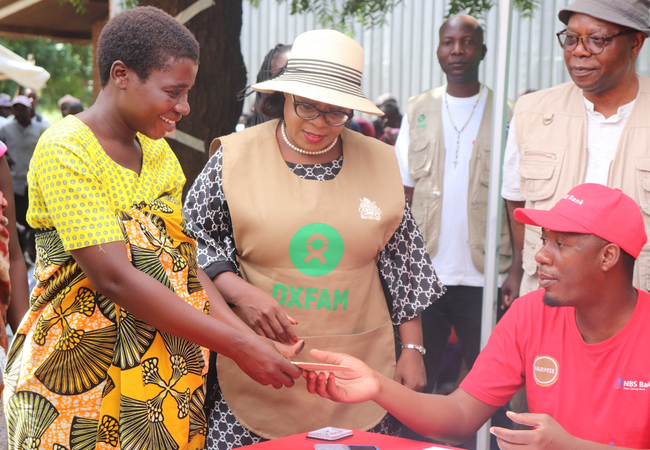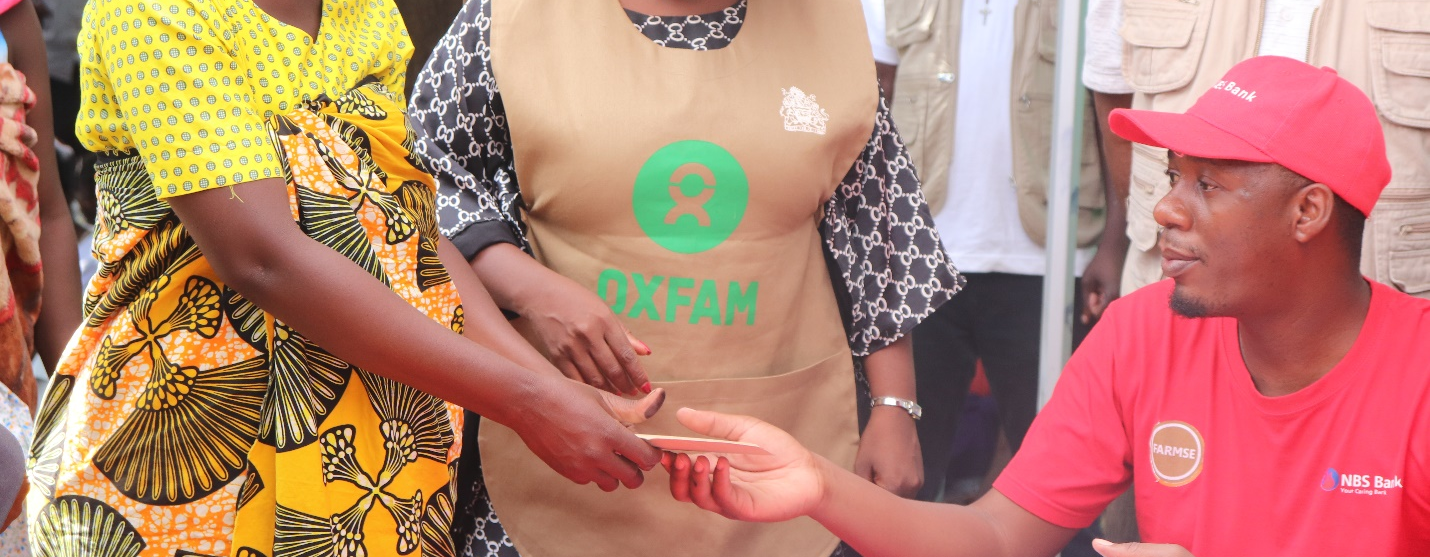Years of drought, floods, and soaring food prices have pushed communities to the brink, with women and children among the most at risk.
Oxfam in Malawi’s response to the escalating crisis, which has left 5.7 million people facing acute hunger, received £150,000 from the Humanitarian Emergency Fund (HEF). Overall, the Scottish Government committed £300,000, with funding also allocated to the Scottish Catholic International Aid Fund.
During March 2025, the money enabled Oxfam to deliver cash assistance to 1,800 households in Nsanje, Malawi’s Southern-most district, giving families the power to purchase food, farming supplies, and other essentials to help them survive the months ahead. Overall, the project supported 10, 400 people.
Nsanje has been the epicentre for natural disasters caused by climate change effects and is currently hosting thousands of Mozambican asylum seekers.
Multiple pressures have fuelled hunger
Malawi is no stranger to extreme weather, but the 2023/24 El Niño brought the worst mid-season dry spell in over a century. Crops withered, livestock perished, and food prices soared, making it impossible for many families to put food on the table. The country remains in the grip of one of its worst food shortages in decades.
Even before this latest disaster, Malawi was still reeling from the destruction caused by Cyclone Ana in 2022 and Cyclone Freddy in 2023, which wiped out homes, farmland, and livelihoods.
Linga Mihowa, Country Director of Oxfam in Malawi, said: "Global aid is falling dangerously short. Right now, parents are skipping meals to feed their children. Some have nothing left but wild plants to eat. Scotland’s support will help save lives, but unless more governments and donors step up, millions will be left to starve. Every day we delay, the crisis deepens, and the consequences become irreversible."
When the harvest fails: the human toll of Malawi’s food crisis
Maria Kamota Lufisher knows all too well what it means when the harvest fails. After losing her husband just weeks ago, she’s now pregnant and caring for two young children alone in Nsanje district.
“He was the one who earned more and took care of us,” she says. “Now I have to provide for my family.”
Like many others, Maria was forced to relocate after repeated flooding, only to face failed maize crops and rising food prices in her new home. With the cash payment provided through Oxfam, she was able to buy maize, school supplies, and a few household essentials. “My hope is to save up and start a tomato or fish business to support my children,” she says. “But it’s not easy.”
Beatrice Asikoti faces similar challenges. She arrived in the Nsanje district having fled flooding. She is grateful for the money she has received from the Scottish Government. “I am still trying to settle and make a life for myself and my family,” says Beatrice. “It's not easy though because most of us are new and we must go to other villages for work. The money I have received today will enable me to buy at least 25 kilograms of maize, pay fees for my daughter and buy some other household basic needs.”
The funds have proved a lifeline for Maria and Beatrice. But for thousands of families like hers, time is running out.
Scotland’s support is vital, but much more is needed
Oxfam has been working in Malawi for decades, providing emergency food aid, clean water, and support for families facing hunger. Our teams have already reached thousands of people, including mothers like Elizabeth, but as the crisis deepens, the need continues to grow. The Scottish Government’s funding has help scale up our response, delivering life-saving cash assistance to more families at risk of hunger and malnutrition.
The Humanitarian Emergency Fund Panel, which features eight leading humanitarian organisations in Scotland, collaboratively recommend projects for Scottish Government support. Crucially, the Fund does not just respond to high-profile emergencies like Gaza or Ukraine, but also those crises that unfold well away from the world’s attention.
While this support to Malawi has offered a temporary lifeline for some, millions still face extreme hunger across Southern Africa – with widespread water shortages, significant livestock losses and diminished harvests, also resulting in rising food insecurity in Mozambique, Zambia and Zimbabwe. Oxfam is urging all international donors to step up before more families are pushed to the brink of starvation.
The region's vulnerability to drought has been intensified by pre-existing socio-economic challenges, a protracted cholera epidemic, the recent Monkeypox outbreak, and the impacts of the climate crisis, severely affecting vulnerable children and communities.
For people in Scotland, the best way to help is by donating to Oxfam’s Southern Africa Food Crisis Appeal. Every pound makes a difference, offering families like Maria’s and Beatrice’s the dignity and security they desperately need.
Donate today.


